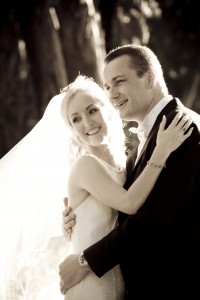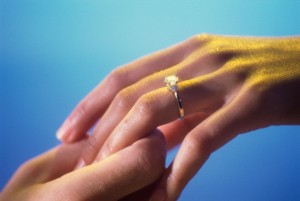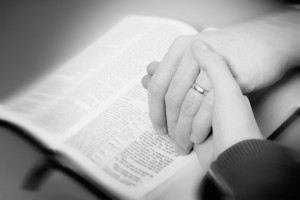Weddings
If you wish to book a wedding please ring or email the parish office. 07925 108856 or pccharnham@gmail.com and a member of staff can guide you through the procedures.
Why get married in church?
A marriage service, wherever it is held, is a public declaration of your love for and commitment to each other.
If you choose to get married in church, there is an added dimension, you are also declaring your love and commitment to God and inviting God to bless your marriage and be part of your relationship. The main emphasis of Christianity is to live in love and to learn to love others as we love ourselves. Christians believe that Jesus Christ set us this example and continues to help us love well in all our relationships. The married life is one way in which this love can be expressed. Including God in your marriage doesn’t mean that you will avoid all the usual ups and downs in life but that you will know you can look to God for help and guidance and that God’s love will sustain you through the support of the church community.
The churches in Harnham are beautiful settings for your wedding day. They are places in which people have made marriage vows for hundreds of years. The prayers of the community from the past, in the present and in future uphold you.
Our vicar and team will work with you to make not only your wedding day special but support you as you explore what married life means. We will listen to you and help you personalise the wedding service through the choice of music, readings and prayers.
Who can get married in St George’s or All Saints Churches?
Any person has a qualifying connection with a parish if:
that person:
- was baptised in the parish. (This does not apply where the baptism formed part of a combined service of baptism or confirmation); or
- had his or her confirmation entered in a church register book of a church or chapel in the parish; or
- has at any time had his or her usual place of residence in the parish for at least 6 months; or
- has at any time habitually attended public worship in the parish for at least 6 months; or
a parent of that person has at any time during that person’s lifetime:
- had his or her usual place of residence in the parish for at least 6 months; or
- habitually attended public worship in the parish for at least 6 months; or
- a parent or grandparent of that person was married in the parish.
What if I am divorced?
If one or both of a couple wish to apply for a marriage, is a divorced person with a former spouse still living, the clergy concerned will arrange to meet with the couple, in accordance with the Advice to Clergy documentation, and ask the couple to complete the Form and Explanatory Statement. The completed form is then discussed and the clergy-person who will decide whether to proceed with the marriage preparations.
Whilst parishioners normally have the right to be married in the parish church of the parish where they live, a clergyperson is entitled by law to refuse to remarry a divorced person in church whilst the former spouse is still living. (Under Section 8 of the Matrimonial Causes Act 1965.)
 What is the procedure?
What is the procedure?
Initially you need to visit Harnham Parish Office, next to the Parish Hall on Lower Street, on any Friday morning between 9.00am and 11.00am. If it is difficult for you both to visit on a Friday morning, please call the office on 07925 108856 to arrange an appointment on a Saturday morning.
You will need to bring evidence of your British citizenship or EE citizenship in the form of a passport, EEA or Swiss national or valid EEA identity card.
If you were born before 1 Jan 1983 and do not have a passport then you could bring a birth certificate.
If you were born after 1 Jan 1983 and you do not have a passport then you will need to bring:
I)a full UK birth certificate showing parents’ details;
- ii) a driving licence or utility bill showing the party’s use of the name;
iii) evidence of the party’s parents’ British citizenship or settled status at the time of the party’s birth (such as parents’ birth certificate) and the party’s parents’ marriage certificate (if the citizenship is claimed through the father).
(Frankly it is easier to get a passport and then bring it!)
Once we have met we prepare for marriage and the wedding day over a number of meetings
Arrangements for the wedding to take place include:
- The reading of the Banns which are read out in church during the three months before the wedding over three consecutive Sundays in the morning worship. You will be invited to attend these three Sundays. Banns are an announcement of your intention to marry and a chance for anyone to put forward a legal reason why your marriage may not take place.
- Preparation meetings to get to know you, to prepare the service and explore the meaning of marriage and the marriage vows, to sort practicalities e.g. flowers, seat reservations, photography
- Wedding rehearsal
- The wedding day itself!
 Can I be married at any time of day?
Can I be married at any time of day?
The marriage must take place between 8.00am and 6.00pm.
How much does it cost?
The legal fees for a marriage cover the publication of banns, certificate of banns if necessary, the marriage service and a certificate of marriage. These fees are fixed centrally.
In addition, there are Verger’s expenses, contributions to lighting or heating and the organist’s fee.
The fees do not cover any extras you may wish to have for the service such as fees for the video recording (as the church has to have a license for this) or flowers etc.

